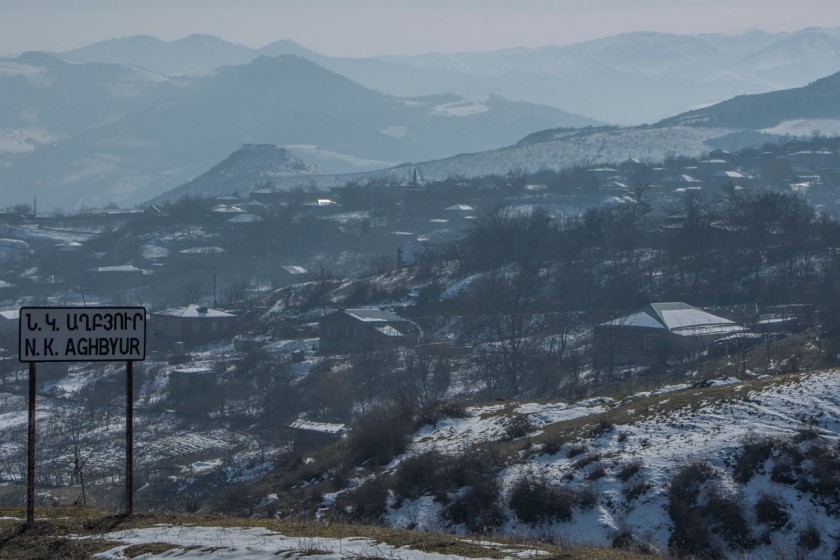
Soldiers and Fathers: Three Brothers on the Armenia-Azerbaijan Border
Parents in Nerkin Karmiraghbyur, a village in Armenia’s Tavoush Province right along the border with Azerbaijan, have come up with various ‘white lies’ to explain to their children what the periodic gunfire is all about.
Three brothers live in the village – Samvel, Arayik, and Manvel. Until recently, all three were contract soldiers in the army. Manvel stopped serving this year in order to take care of the family.
42 year-old Samvel tells his sons that the shooting is from an adjacent firing range. 37 year-old Arayik, the tells his daughters that someone is shooting of fireworks.
Arayik doesn’t want to alarm his children. Nor does Samvel. Nevertheless, the father has told his kids to be careful when playing outside. That simple warning alone has put the kids on edge.
“We and those older than us have seen how such psychological stress really affects the children,” Samvel says.
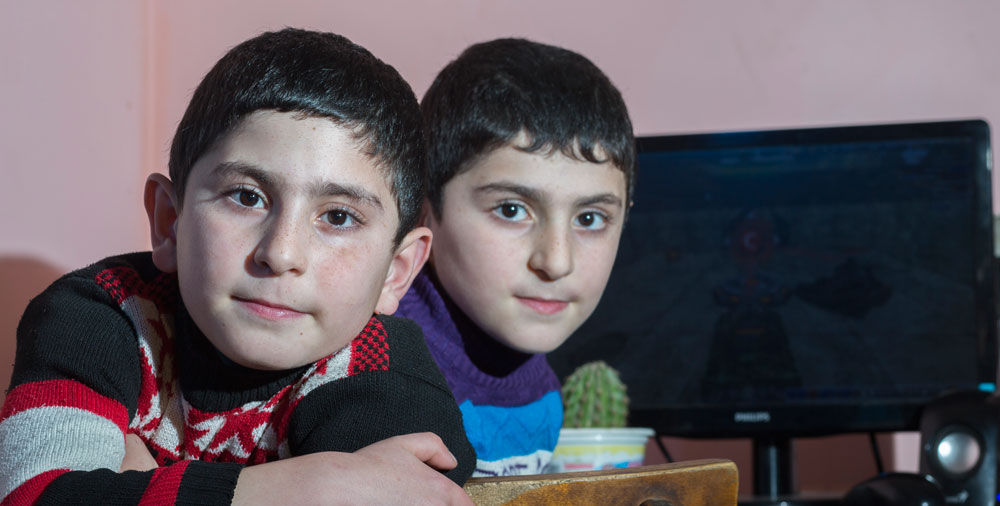
Prior to 2009, when he became a contract soldier, Samvel was engaged in agricultural and then left to work in Russia. He figured that becoming a soldier would afford him a regular salary to take care of the family. Farming was a question of time; planting the crop and waiting to harvest the crop for eventual sale.
Samvel is starting to raise animals. The day we visited, he had taken one of his pigs to the town of Berd to sell.
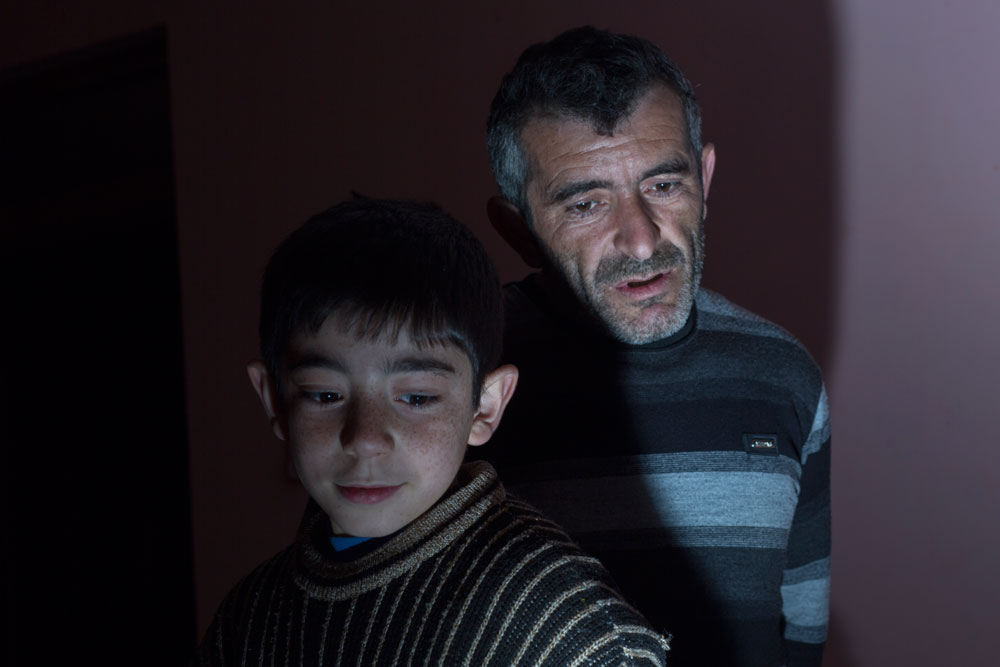
Nerkin Karmiraghbyur is located 750 meters from an Azerbaijani military outpost on the other side of the border. Only 20% of the village’s arable land is cultivated. Samvel says that you have to build a defensive wall just to plant a vegetable garden. Everywhere is vulnerable to Azerbaijani fire, he says.
Aygepar is the closest Armenian village to Nerkin Karmiraghbyur. After that it’s the border with Azerbaijan and the villages of Alibeyli, Hajalou and Okyouzlou. Five residents and two soldiers have died in Nerkin Karmiraghbyur ever since the ceasefire was signed two decades ago.
Over the years, various organizations and individuals have provided diverse assistance to the village. While Samvel confesses that many more residents would have left the village were it not for this assistance, he adds that such aid is an embarrassment given that they might have improved conditions in the village with their own efforts.
“There’s an ocean between us and America. They come and help us. If I could, I’d plant 50 meters of tomatoes over there,” Samvel says.
Samvel has just renovated his house but shows us the bullet holes in the walls and roof. He says that peace is preferable to the constant firing on both sides.
“I just want my windows to remain as they are. I don’t want to spend 2,000-3,000 drams to replace each one. And I have no need to shoot at their houses. Just so long that they don’t break my windows. This psychological stress and the children crying is too much.”
Nerkin Karmiraghbyur Mayor Manvel Kamendatyan says that 1,350 people live in the village. “There are 350 homes in the village. Many have rebuilt their homes several times. Where can they go?”
Samvel’s two brothers and more than forty other village residents continue to serve as contract soldiers. Samvel says they are less than 170 meters from the Azerbaijani outpost. Samvel says that every time he hears gunfire he thinks of his brothers – did they come under fire?
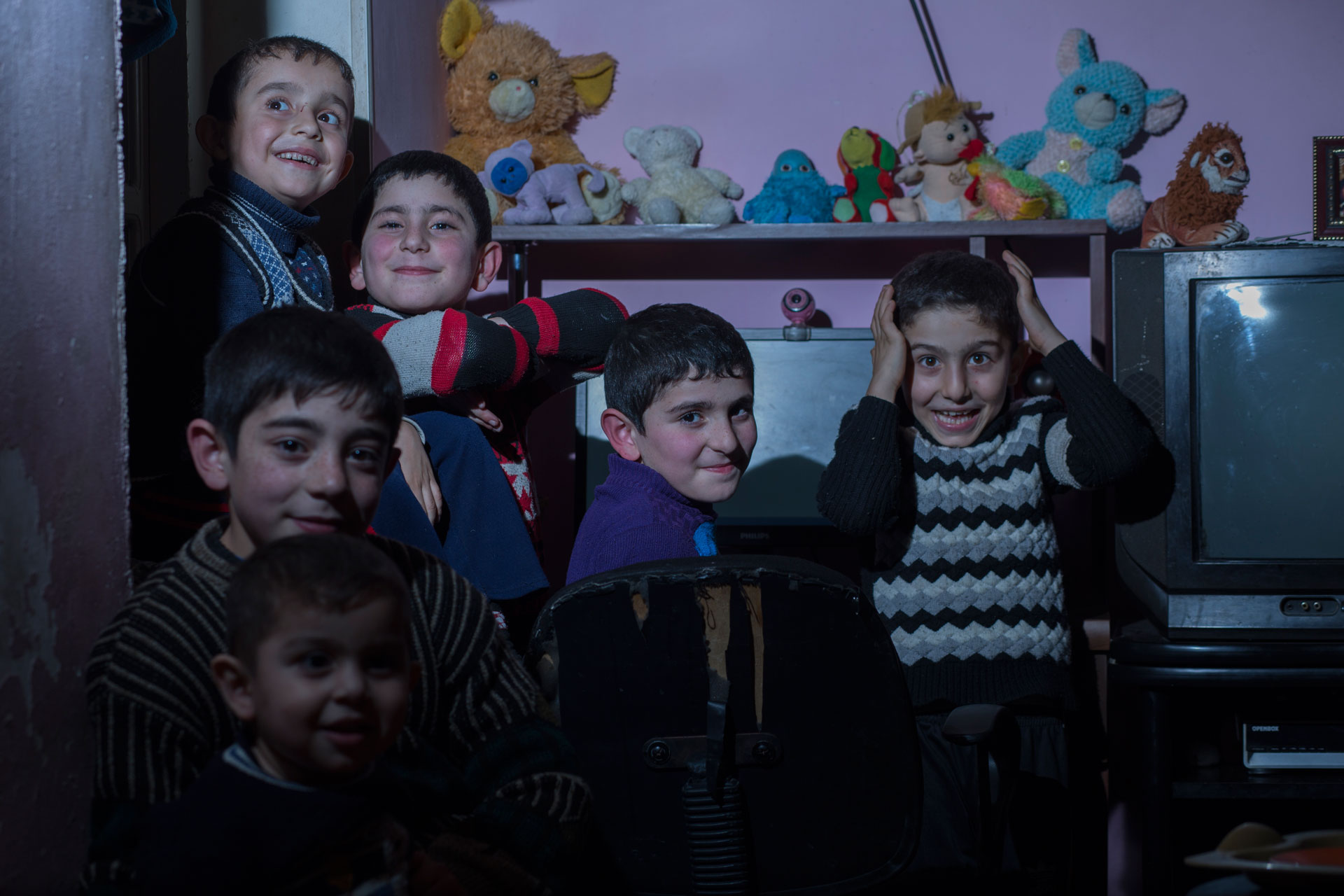
Manvel is the senior soldier in the outpost where he and his brother Arayik serve. They are also on call and have to report back to the frontline in case of emergency. They are on leave for half the month and use the time to do all the household chores and other work that needs to be done. They also spend some quality time with their children.
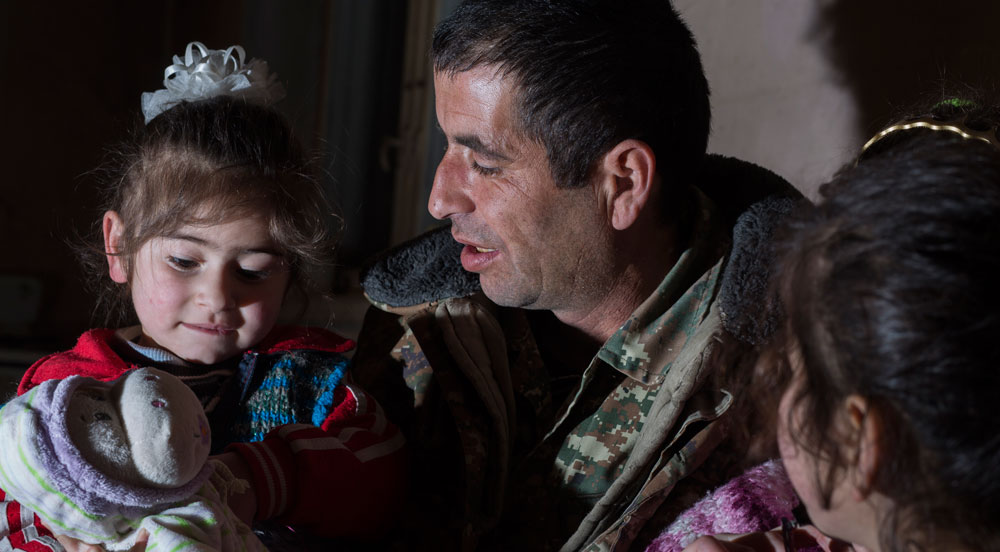
“One day, it had snowed, and she was asking me why Santa Claus hadn’t come. She knows that every time it snows Santa Claus visits,” Arayik says about a conversation with Manoushak, his two year-old.
The girls have gotten used to the fact that their father is home for part of the month and away the rest.
“There’s no need to explain why I’m home for two weeks and then away for two weeks. She’s only two. What will she understand?” Arayik says.
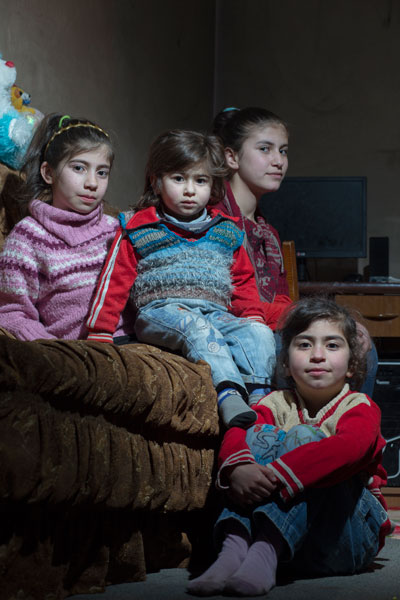 |
| Arayik’s daughters |
Arayik tells his daughters about daily life on the frontline and answers whatever questions they might have.
Ani, in the sixth grade, asks her father if he and his fellow soldiers get tired serving at the outpost. The girl says that she and her sisters don’t like it when their father is away. They get scared, Ani confesses.
Arayik says that it’s nice to get a regular paycheck from the army but that it’s not enough to provide for a growing family.
Like his fellow villagers, Arayik wants some settlement of the conflict so that they can get about their work in peace and not be forced to scurry about at harvest what they have planted.
Nerkin Karmiraghbyur residents say that people in the Azerbaijani villages visible across the border sometimes have been seen reprimanding their border guards for opening fire on Armenian villagers working in the fields. They know that counter fire will soon come and that they will suffer as well.
Both governments have said that they will immediately respond to gunfire from the other side. These villages are the first to come under attack.
Laughing while comparing conditions in the village to that at the military outpost, Samvel says that, on principle, it’s safer at the outpost.
“They have to fire through a small hole at the outpost. It’s a longshot at best. In the village, the sniper sees any movement at all,” says Samvel.
Photos and video by Davit Banuchyan
 Videos
Videos Photos
Photos
Write a comment